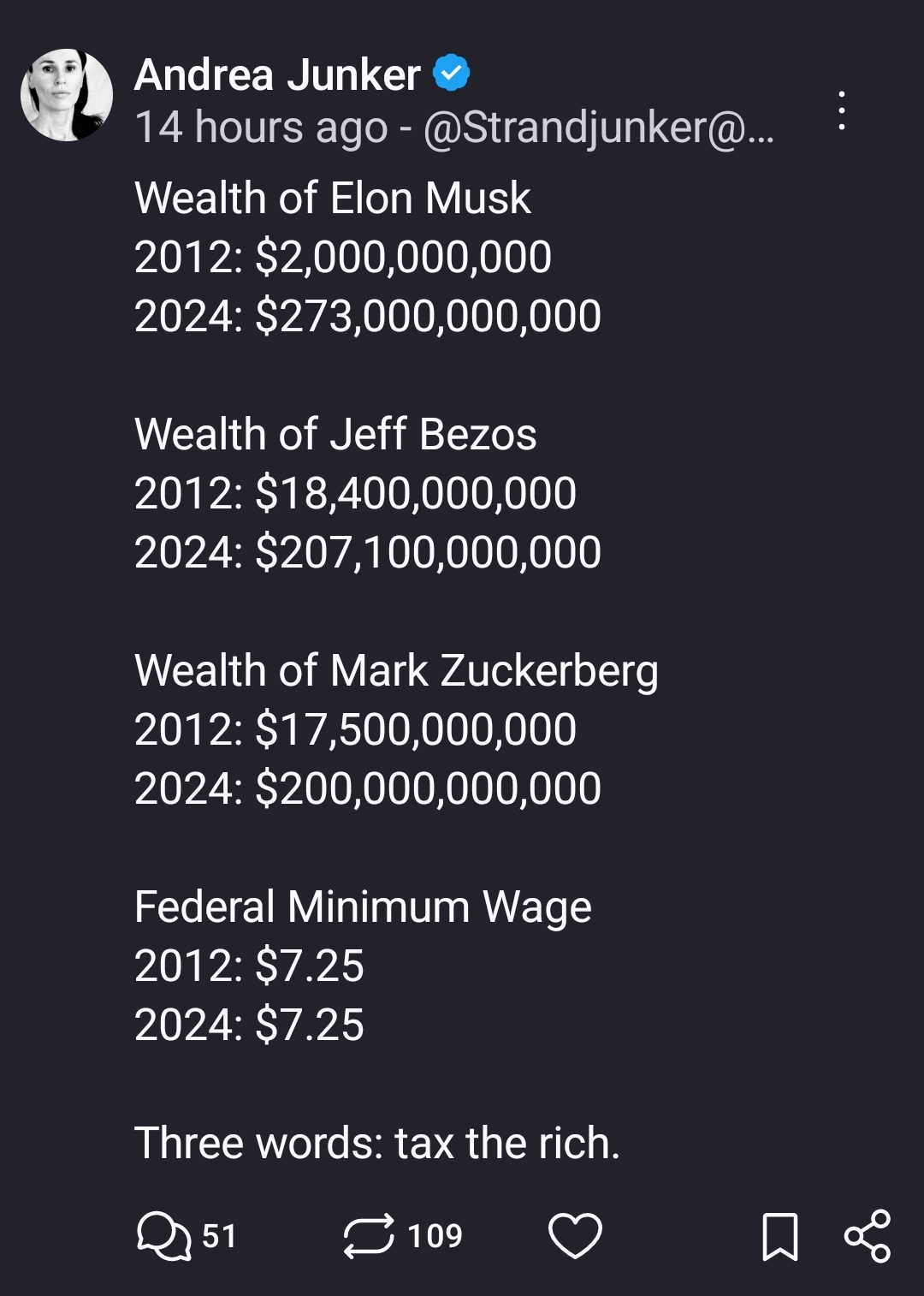this post was submitted on 26 Oct 2024
1559 points (98.5% liked)
People Twitter
5264 readers
1568 users here now
People tweeting stuff. We allow tweets from anyone.
RULES:
- Mark NSFW content.
- No doxxing people.
- Must be a tweet or similar
- No bullying or international politcs
- Be excellent to each other.
founded 1 year ago
MODERATORS
you are viewing a single comment's thread
view the rest of the comments
view the rest of the comments

They'd still be profitable, but less profitable, so they'd be lowest priority.
If you're American, you may not realize this, but there are a lot of products and services that are only available in the USA because that's the most profitable place for them. The companies have plans to eventually expand to Canada, and then maybe Europe, but the focus is now on the US because that's where the profit is.
If the US had extremely high taxes for those companies, they'd focus elsewhere. Sure, eventually they'd get around to the US once they saturated the European, Asian, Canadian, Mexican, South American and African markets, but it would never be a priority. And, for a lot of companies, "getting around to serving the US market" just wouldn't happen.
Well I'd hope those other places would follow suit. But also, the free market would still allow others to fill the shoes of the companies that left. And whether a company pays a worker who then pays taxes, or whether we cut out the middleman and the company just pays the taxes directly, it's the same amount leaving the company. But also, if corporations actually had to pay taxes maybe they'd start pushing on each other to stop gouging the government.
The Free Market would also allow them to set up their business in Europe and go for that market instead. And, since they make a much bigger profit in Europe than in the US, that would be their focus. The only companies that would set up in the US are the ones that are not able to make the bigger profits available in Europe.
This is basically like the car market in the USSR after WWII. The major American, European and Japanese automakers didn't operate there, but of course that didn't mean there weren't any cars. It just meant that there weren't any good cars.